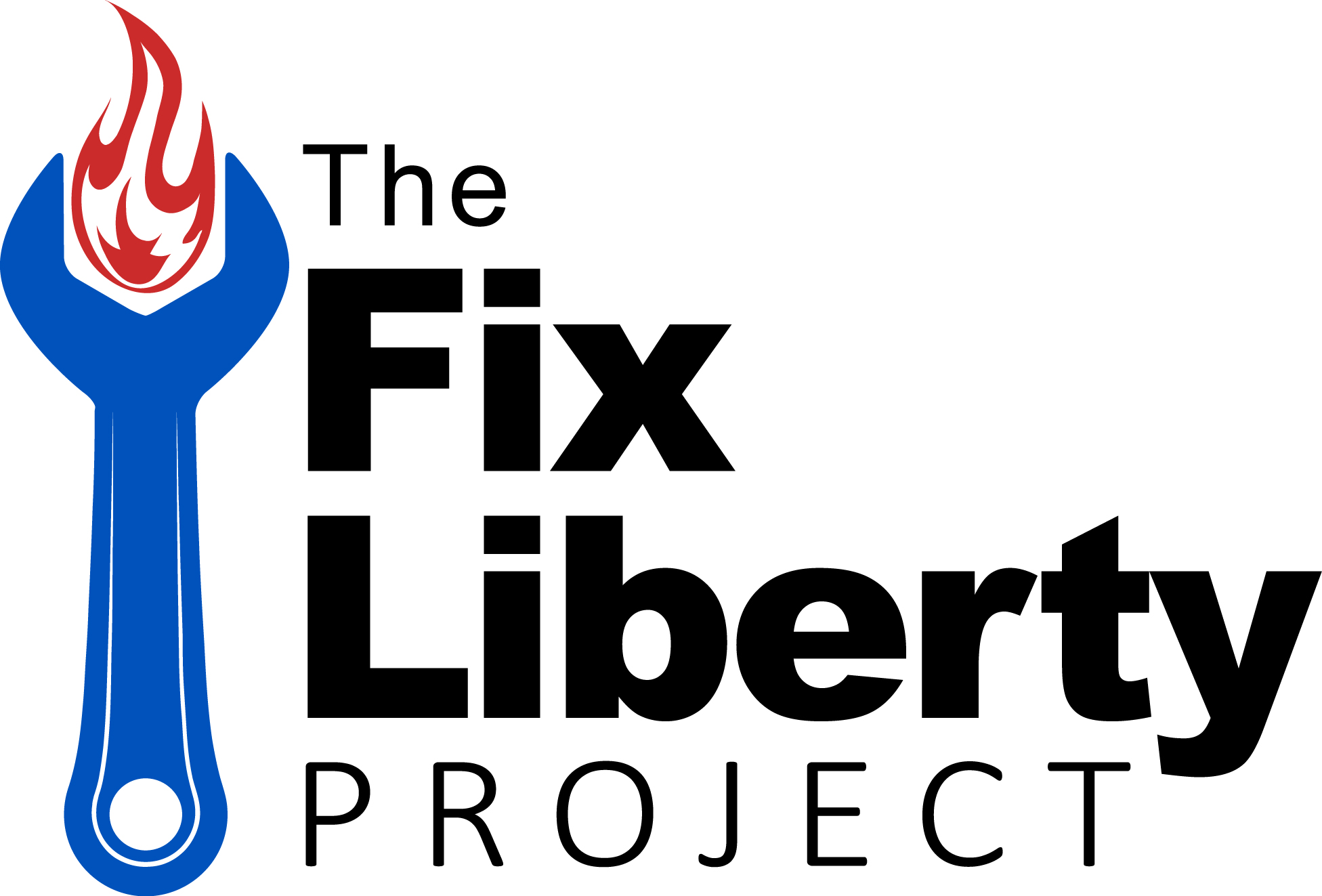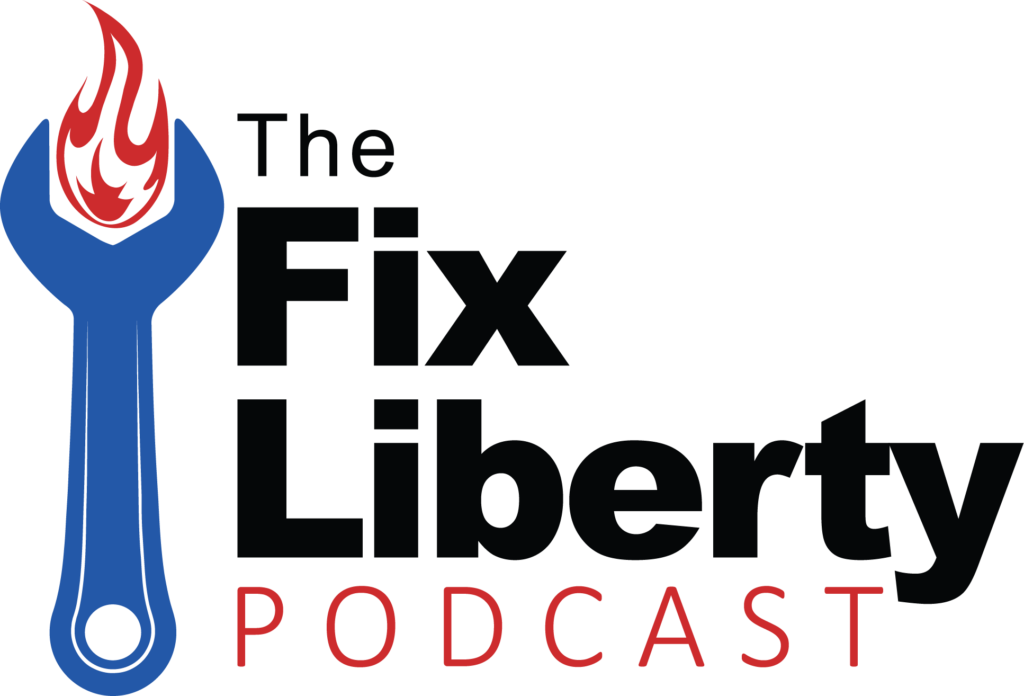A Week in Review at The Fix Liberty Project
Posts dated September 20, 2021 – September 26, 2021
Curated below are our posts from this week. Please chime in with your thoughts and questions by clicking the “Comment on Facebook” link — and remember to share those threads you find particularly interesting with your friends. Let’s #FixLiberty in American culture!
📖 "Consumption is the sole end and purpose of all production; and the interest of the producer ought to be attended to, only so far as it may be necessary for promoting that of the consumer. The maxim is so perfectly self-evident, that it would be absurd to attempt to prove it. But in the mercantile system, the interest of the consumer is almost constantly sacrificed to that of the producer; and it seems to consider production, and not consumption, as the ultimate end and object of all industry and commerce." -𝘛𝘩𝘦 𝘞𝘦𝘢𝘭𝘵𝘩 𝘰𝘧 𝘕𝘢𝘵𝘪𝘰𝘯𝘴 by Adam Smith (Book 4, Chapter 8 )
#FixLiberty
... See MoreSee Less
- Likes: 1
- Shares: 0
- Comments: 0
0 CommentsComment on Facebook
✝️ "For freedom Christ has set us free; stand firm therefore, and do not submit again to a yoke of slavery." -Galatians 5:1 (ESV)
#FixLiberty
... See MoreSee Less
0 CommentsComment on Facebook
📖 "The destructive side of creative destruction comes in two distinct forms: the destruction of physical assets as they become surplus to requirements, and the displacement of workers as old jobs are abandoned. To this should be added the problem of uncertainty. The 'gale of creative destruction' blows away old certainties along with old forms of doing things: nobody knows which assets will prove to be productive in the future and which will not." -𝘊𝘢𝘱𝘪𝘵𝘢𝘭𝘪𝘴𝘮 𝘪𝘯 𝘈𝘮𝘦𝘳𝘪𝘤𝘢 by Alan Greenspan and Adrian Wooldridge (p. 21-22)
#FixLiberty
... See MoreSee Less
0 CommentsComment on Facebook
📖 “The primary form of social capital is family.” -𝘛𝘩𝘦𝘮: 𝘞𝘩𝘺 𝘞𝘦 𝘏𝘢𝘵𝘦 𝘌𝘢𝘤𝘩 𝘖𝘵𝘩𝘦𝘳--𝘢𝘯𝘥 𝘏𝘰𝘸 𝘵𝘰 𝘏𝘦𝘢𝘭 by Ben Sasse (p. 33)
#FixLiberty
... See MoreSee Less
0 CommentsComment on Facebook
📖 "This is the tendency of a large central state: When you strengthen the vertical bonds between the state and the individual, you tend to weaken the horizontal bonds between individuals. What's left is a whole that by some measures is more cohesive, but individuals who are individually all less connected to one another." -𝘈𝘭𝘪𝘦𝘯𝘢𝘵𝘦𝘥 𝘈𝘮𝘦𝘳𝘪𝘤𝘢 by Timothy P. Carney (p. 197)
#FixLiberty
... See MoreSee Less
0 CommentsComment on Facebook
📖 "When the happiness or misery of others depends in any respect upon our conduct, we dare not, as self-love might suggest to us, prefer the interest of one to that of many. The man within immediately calls to us, that we value ourselves too much and other people too little, and that, by doing so, we render ourselves the proper object of the contempt and indignation of our brethren." -𝘛𝘩𝘦 𝘛𝘩𝘦𝘰𝘳𝘺 𝘰𝘧 𝘔𝘰𝘳𝘢𝘭 𝘚𝘦𝘯𝘵𝘪𝘮𝘦𝘯𝘵𝘴 by Adam Smith (Part 3, Section 1, Chapter 3)
#FixLiberty
... See MoreSee Less
0 CommentsComment on Facebook
📖 "People still tend to idealize leaders and worship them, and you must see this as a form of grandiosity. By believing someone else will make everything great, followers can feel something of this greatness. Their minds can soar along with the rhetoric of the leader. They can feel superior to those who are not believers." -𝘛𝘩𝘦 𝘓𝘢𝘸𝘴 𝘰𝘧 𝘏𝘶𝘮𝘢𝘯 𝘕𝘢𝘵𝘶𝘳𝘦 by Robert Greene (p. 308)
#FixLiberty
... See MoreSee Less
0 CommentsComment on Facebook
📖 "An economy can grow in exactly two ways: its labor force can expand, or its output per worker can increase. From the Roman Empire to the Industrial Revolution, population growth was slow and productivity growth was nil. The Industrial Revolution earned its name by unleashing unprecedented productivity growth." -𝘛𝘩𝘦 𝘎𝘳𝘦𝘢𝘵 𝘙𝘦𝘷𝘦𝘳𝘴𝘢𝘭: 𝘏𝘰𝘸 𝘈𝘮𝘦𝘳𝘪𝘤𝘢 𝘎𝘢𝘷𝘦 𝘜𝘱 𝘰𝘯 𝘍𝘳𝘦𝘦 𝘔𝘢𝘳𝘬𝘦𝘵𝘴 by Thomas Philippon (p. 13)
#FixLiberty
... See MoreSee Less
0 CommentsComment on Facebook
📖 "[W]ithout the disposition to truck, barter, and exchange, every man must have procured to himself every necessary and conveniency of life which he wanted. All must have had the same duties to perform, and the same work to do, and there could have been no… difference of employment as could alone give occasion to any great difference of talents." -𝘛𝘩𝘦 𝘞𝘦𝘢𝘭𝘵𝘩 𝘰𝘧 𝘕𝘢𝘵𝘪𝘰𝘯𝘴 by Adam Smith (Book 1, Chapter 2)
#FixLiberty
... See MoreSee Less
0 CommentsComment on Facebook
📖 "Especially when we are afraid, angry, or confused, we may be tempted to give away bits of our freedom -- or, less painfully, somebody else's freedom -- in the quest for direction and order." -𝘍𝘢𝘴𝘤𝘪𝘴𝘮: 𝘈 𝘞𝘢𝘳𝘯𝘪𝘯𝘨 by Madeleine Albright (p. 242)
#FixLiberty
... See MoreSee Less
0 CommentsComment on Facebook

